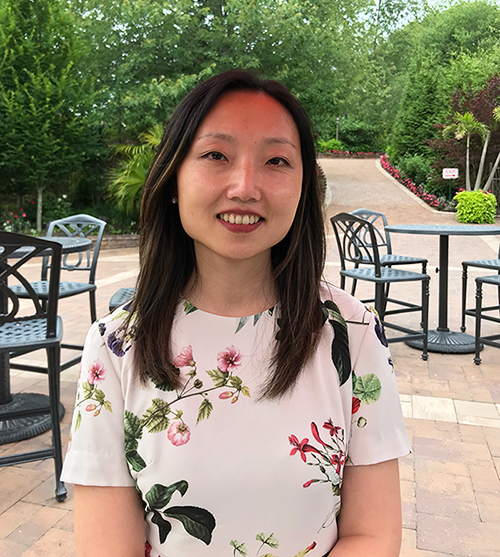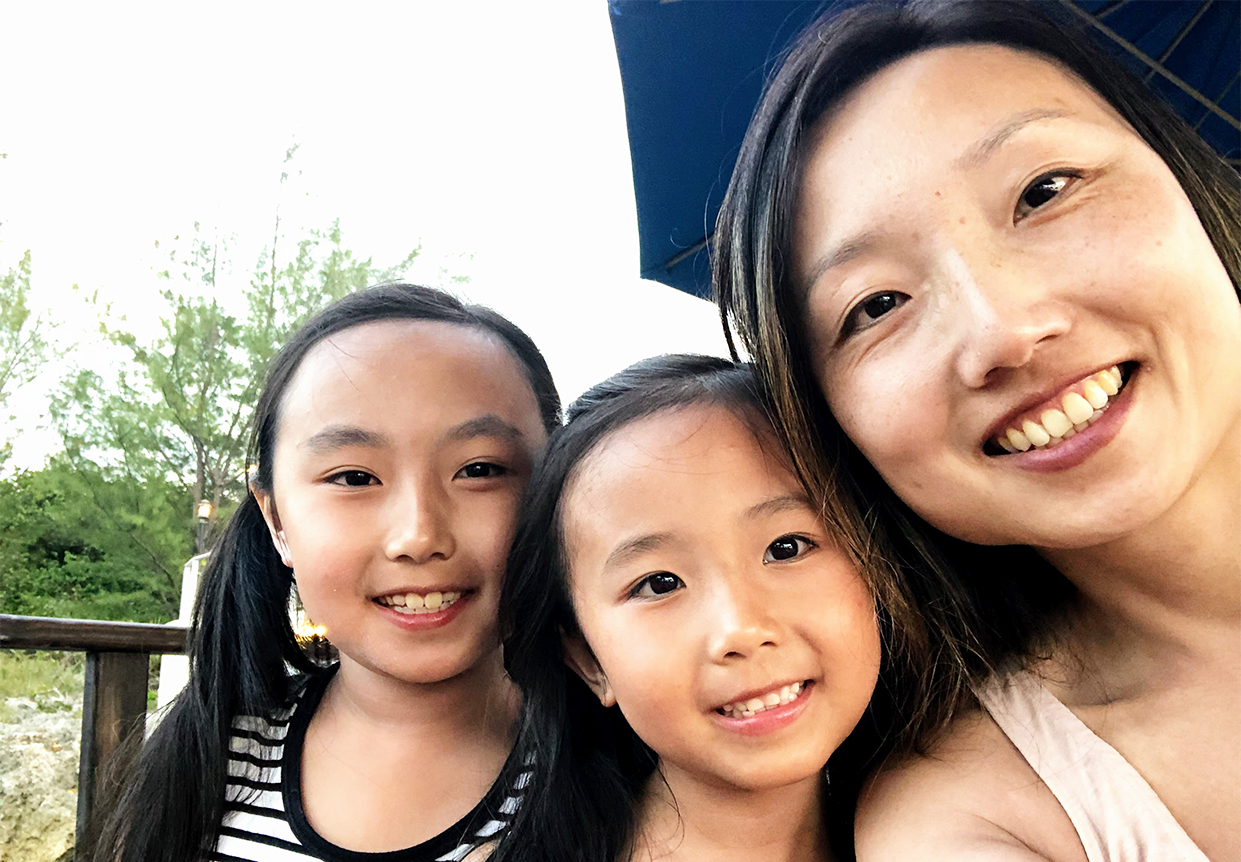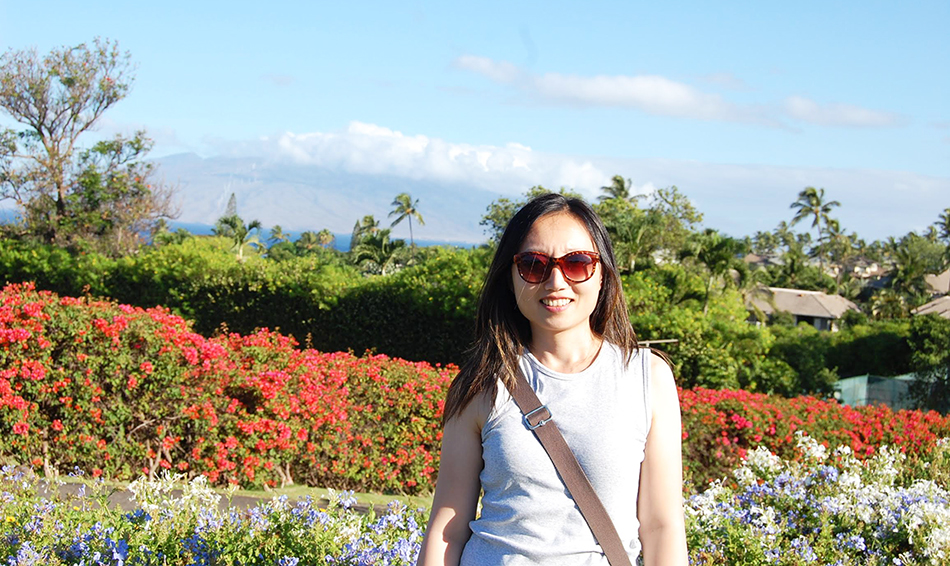Interview by Visual Collaborative
September 2020 10 min read

Jing Tao, Photo courtesy of Jing
Jing Tao, based in New York City, is a Senior Development Manager at Oracle. She started a career at Merrill Lynch, later working in various industries spanning finance, health, and marketing, she has worked with companies such as CrowdTwist and WebMD. As a feature in our Eta Carinae interview series, Jing talks to us about the origins of her career in software engineering of 20 years, her heritage, family, and advice to emerging professionals following a similar path.
(VC) What music are you streaming or listening to at the moment?
(Jing) Music for concentration, a playlist on Spotify.
(VC) New York City is considered one of the most energetic cities in all of the United States. But does it’s technology corridor and hubs reflect that of a supporting ecosystem for women?
(Jing) From my experience, a vast majority of people in my workplace are supportive, and many advocates for women in technology. I’ve been lucky to have worked for managers who saw my potential and worth and helped me grow professionally. I also have a network of male allies who respect and appreciate me as their teammate. Focus on creating good work and mastering your craft, and trust and respect will follow.
No matter where you are, however, I believe a person’s support system at home plays a tremendous role in their career success. My husband and I share responsibilities in housework and in raising our children. Our parents are always just a call away when we need their help. I wouldn’t be where I am today without their support.
(VC) You have done loads of work in both the finance and technology sector. Was this a natural career progression or all part of a plan?
(Jing) I didn’t have a plan. Being an introvert who is somewhat good with numbers, my family encouraged me to be an accountant. So I started college as an Accounting major at NYU Stern School of Business. I hated it. After one semester, I transferred to NYU College of Arts and Sciences and went on the Pre-med track. Even though I come from a family of doctors and nurses, I never aspired to be one. One summer, a friend of mine knowing I was struggling to decide on a career path, suggested I take a programming class. I took it, loved it, and became a Computer Science major that fall.
We would be predicting the future if plans worked all the time. What’s important is to pause once in a while, and realize when you’re on the wrong course, then adjust accordingly
After college, I chose to work for Merrill Lynch because of its Technology Leadership Program. It was a wonderful two months training program where we learned everything from finance to technology to leadership skills. It was a nice transition from school to the corporate world. After that, my job transitions mainly depended on how engaged and challenged I felt at work. I never moved to another company for money or title. In fact, I took a small pay cut from each transition because I felt the experience and potential growth was worth much more; and I was confident these pay cuts were only temporary once I got my foot in the door.
I think it’s OK if you don’t have a plan or don’t go according to plan. We would be predicting the future if plans worked all the time. What’s important is to pause once in a while, and realize when you’re on the wrong course, then adjust accordingly. Trust your instincts and don’t just follow a plan for the sake of following it.

Jing and daughters, Photo courtesy of Jing
(VC) As an astute professional, what can you candidly tell aspiring women in the field about success and risk in technology?
(Jing) Growing up, the picture of “success” included a big house, well paid stable job in a respected profession, get married and have kids that grow up to be doctors. The problem was, I didn’t paint that picture. It was like one of those standard photos that came with your picture frames. I did not start painting my own success picture until later years in college, and it’s been a work in progress throughout different stages of my life. My current definition of success is to wake up every day doing engaging, meaningful work, having the freedom to decide when to work and when to take a break, and raising my kids to become decent, kind human beings with the confidence to define and find their own happiness. Job titles and financial wealth are nice to have, but they don’t define my success.
Once you know what you want to achieve, formulate a plan and run with it. Don’t be afraid of failure. Don’t hold back. If an opportunity comes that aligns with your career goals, take it. See a job post that looks intriguing, but you don’t fit the qualifications 100%? Apply for it. Holding back because of fear of rejection or fear of failure gives you a 0% chance of success. An opportunity that’s out of your comfort zone is a learning opportunity that gives you more room for growth. You might not do everything right in the beginning, but that’s OK. Learn from it and do better next time.
(VC) In our present times, AI and Big Data are no longer buzzwords but a reality. What are your thoughts on Transhumanism and its progressive relationship with society?
(Jing) I am not very familiar with this concept. From a brief read on Wikipedia, I’d say I would be all for it if it’s used solely for the benefit of improving the lives of those with disabilities and medical conditions. For everyone else, let’s just focus on being better humans first.
(VC) What does self-awareness mean to you, and how closely is it tied to your leadership work?
(Jing) Self-awareness to me means having clarity around your core values, knowing what your strengths and weaknesses are, and continuously self reflect and take action to become the ideal version of yourself.
When you become a leader, your decisions, words, and actions no longer just affect you, but also those you lead. Same with parenting. You’re suddenly responsible for the well-being of others, and they look to you for what’s right and wrong, and to gauge what’s acceptable. They will follow your lead and copy your mood and behavior whether good or bad. So as a leader, I also need to be aware of how my behavior is affecting those around me. Am I giving people the chance to grow and figure things out on their own? Do I react to mistakes and failures in a way that nurtures a growth mindset? What can I do or say differently to help instill confidence in others? We learn and become better versions of ourselves through self-reflection.
(VC) Outside of the obvious Covid-19 social distancing realities, and your commitments to Oracle if you could work alongside any notable personality or enterprise. Who would it be, and why?
(Jing) Duff Goldman. Designing and making custom cakes that celebrate people’s life achievements and milestones just sounds like a fun, fulfilling job. I would love to see first hand his creative process, and how he incorporates art, physics, and engineering into his work. Plus my kids are big fans, so it’ll give me some cool mommy points.
(VC) Does your Chinese heritage play a significant part in your business decisions, or would you consider yourself more Asian-American with a western outlook?
(Jing) My culture has definitely influenced my early career decisions, from choice of profession, choice of employer, to how I behave, and present myself at work. I was taught to study hard, work hard, pick a profession that’ll guarantee job safety and steady income, respect authority, and don’t cause trouble. These are great, practical advice, and I don’t regret the choices I’ve made. However, having lived in the US for over 30 years, I’ve also adopted a more western outlook. My cousin, who grew up here, is a model, musician, and speech-language pathologist who just founded her own company to help kids with autism. How awesome and inspiring is that? Not the conventional career path that a traditional Chinese family would have imagined for their kids. I applaud her for having the courage to build her own path.
There is value and benefits in both outlooks, and if I were to put myself on a spectrum between the two, I’m probably somewhere in the middle. Compared to my cousin, I’d consider myself risk-averse when making business decisions. But I’ve become more comfortable taking risks over time. The decision to leave a renowned company for a startup in 2015 was a difficult one for sure. But it turned out to be one of the best decisions I’ve made.

Photo courtesy of Jing Tao
This pandemic has made it clear that there is no substitution for face-to-face, in-person interactions. I feel for the kids who now suddenly have to learn from a computer screen all day. It’s hard to bond with new teachers and classmates on screen, and that connection is so important for effective learning
(VC) Most forward-thinking societies or cultures would agree technology is the new key to integration. When it comes to computer science, do you lean more on your love for it or instincts for interpersonal communications?
(Jing) Technology has made our lives more convenient in many ways. However, like all things that are good in moderation, when used in excess, it becomes a problem. Information overload, Zoom fatigue, social media addiction, you name it. How many hours do people waste watching vlogs and scrolling through social media? Kids would spend hours watching other kids play Minecraft on youtube. I still don’t get its appeal. I’m not immune to it either. I have Slacked people in the office who were sitting two seats away from me.
This pandemic has made it clear that there is no substitution for face-to-face, in-person interactions. I feel for the kids who now suddenly have to learn from a computer screen all day. It’s hard to bond with new teachers and classmates on screen, and that connection is so important for effective learning. Unspoken words from subtle body gestures and facial expressions are hard to pick up from behind a screen and impossible to detect in emails and Slack. I miss the coffee breaks with coworkers, the impromptu whiteboard discussions, lunch outings, and even the random French swear words my coworker used to shout out in frustration. We are social animals that thrive on social interactions. Despite my love for computer science and technology, I sometimes reminisce about the “simpler” days without smartphones when people just got together and talked. One of my fondest memories is sitting in the living room with my cousins after dinner, listening to our grandmother telling her life stories. There’s no technology that can replace that.
(VC) Jing, thanks very much for your time. Is there anything you would like to share with our Visual Collaborative audience?
(Jing) Stay positive, stay safe, and be kind. Use this time to reflect. Which parts of this “new normal” would you want to keep when the pandemic is over? Which parts of the “old normal” did you take for granted, and which can you do without? And lastly, read more. There’s a lot of wisdom to be learned in those books.